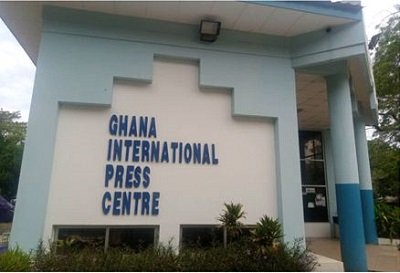Editorial
Thumbs up to professionals holding the fort

Dear Editor,
Journalists put in lots of effort to deliver good content and stories to the public and I must say our local practitioners, over the years, continue to perform this function satisfactorily.
As the practitioners serve the public interest, a number of factors continue to undermine the crucial role they play. Notable among them is media ownership structure which, to a great extent, limits the ‘neutral role’ practitioners are expected to play when performing their duties.
A follow up to the above, is the practice where some media houses prioritise speed over facts and, in effect, churn out stories which sometimes do more harm than good.
Apart from remuneration, some practitioners are sometimes threatened or assaulted in their line of work. These and many others have, indeed, become a disincentive to the noble profession.
In spite of the setbacks, some practitioners continue to serve diligently with the hope that things would change for better. But while they keep hope alive, I wish to urge the relevant bodies to work harder to enhance the image of the profession.
While I call for sanctions on journalists who disregard codes of conduct, the Ghana Journalists Association (GJA) should ensure people who assault journalists are brought to book. The association should prioritise the interest of journalists by demanding fair wages, job security and better working conditions for practitioners.
Private and public institutions should continue to deepen collaboration with established media outlets, lead initiatives that promote transparency and accountability, and help break the barrier of practitioners presenting one-sided stories.
I say thumbs up to those who continue to hold the fort, and again urge journalists and media houses to build a united front and support, speak up and defend their mandate whenever it is trampled upon.
Deborah Mawunya Aflakpui,
Student, Ghana Institute of Journalism
NCCE sensitisation in order
Dear Editor,
Last weekend your widely-read newspaper carried a story on page three in which the National Media Commission (NCCE) was cautioning young people not to fall for enticement from extremists.
I believe the call is in order and wish to commend the Commission for its effort in creating the awareness of the danger. Apart from that publication, I have also noticed other radio jingles the NCCE had sponsored on this same subject.
Violent extremism, indeed, is the new enemy and we must all be on our guard. Some security analysts have said that in the face of increasing unemployment, some young people who have “nothing to lose” may easily adopt the extremist approach when push comes to shove.
This is why I find the public education by the NCCE timely and urge them to do more as the government focuses on creating more opportunities for the youth.
Frank Kumi,
Kasoa.
Editorial
Build fairer educational system after double-track
Dear Editor,
THE Ghana Education Service (GES) has announced that most Senior High Schools (SHSs) will return to the single-track system by this month.
For many students and parents, this feels like a relief. But before we move on, we must take a moment to reflect.
The double-track system helped thousands of students get into schools. It gave hope to families who couldn’t afford private education. But it also came with challenges.
Some students had shorter terms, others had longer breaks. Teachers were stretched, and learning felt rushed. Many students felt left behind not because they didn’t try, but because the system didn’t give them enough time.
Now that we’re returning to single-track, let’s make sure we don’t repeat the mistakes of the past. We need more classrooms, better planning, and support for teachers.
Education is not just about getting into school. It’s about feeling safe and supported. Let’s build a system that gives every child a real chance.
Beatrice Princess Kpeglah,
Dansoman
Join our WhatsApp Channel now!
https://whatsapp.com/channel/0029VbBElzjInlqHhl1aTU27

Editorial
Let’s embrace environmental conservation
Dear Editor
As it is critical for preserving our surroundings, there is the urgent need for increased awareness and action to protect Ghana’s environment and resources.
Ghana’s forest reserves, vast savannas and scenic coastlines serve as homes and habitats to a wide range of flora and fauna, including several endangered species.
Our vegetation and rich soil deposits provide the nation with food, plants and animal resources, which ensures food availability and accessibility for the population.
However, the country’s environment is facing numerous threats including deforestation, overexploitation, pollution, etc.
The importance of environmental conservation cannot be overstated; our natural resources are the backbone of our economy, playing a vital role in driving the country’s economic growth and development.
It is therefore critical that we take actions to protect them for our future generations.
There is the need for collective action to address environmental challenges and promote sustainable development.
Environmentalists, various organizations and private individuals must come on board to promote environmental conservation, through tree planting exercises, clean-up campaigns, and resource conservation practices.
These efforts, when carried out effectively, would create a long-lasting impact in protecting and conserving the country’s environment.
The Ghanaian government should also implement policies and conduct regular programmes aimed at promoting environmental conservation.
By Theresa Tsetse Dzifa,
Bubiashie






